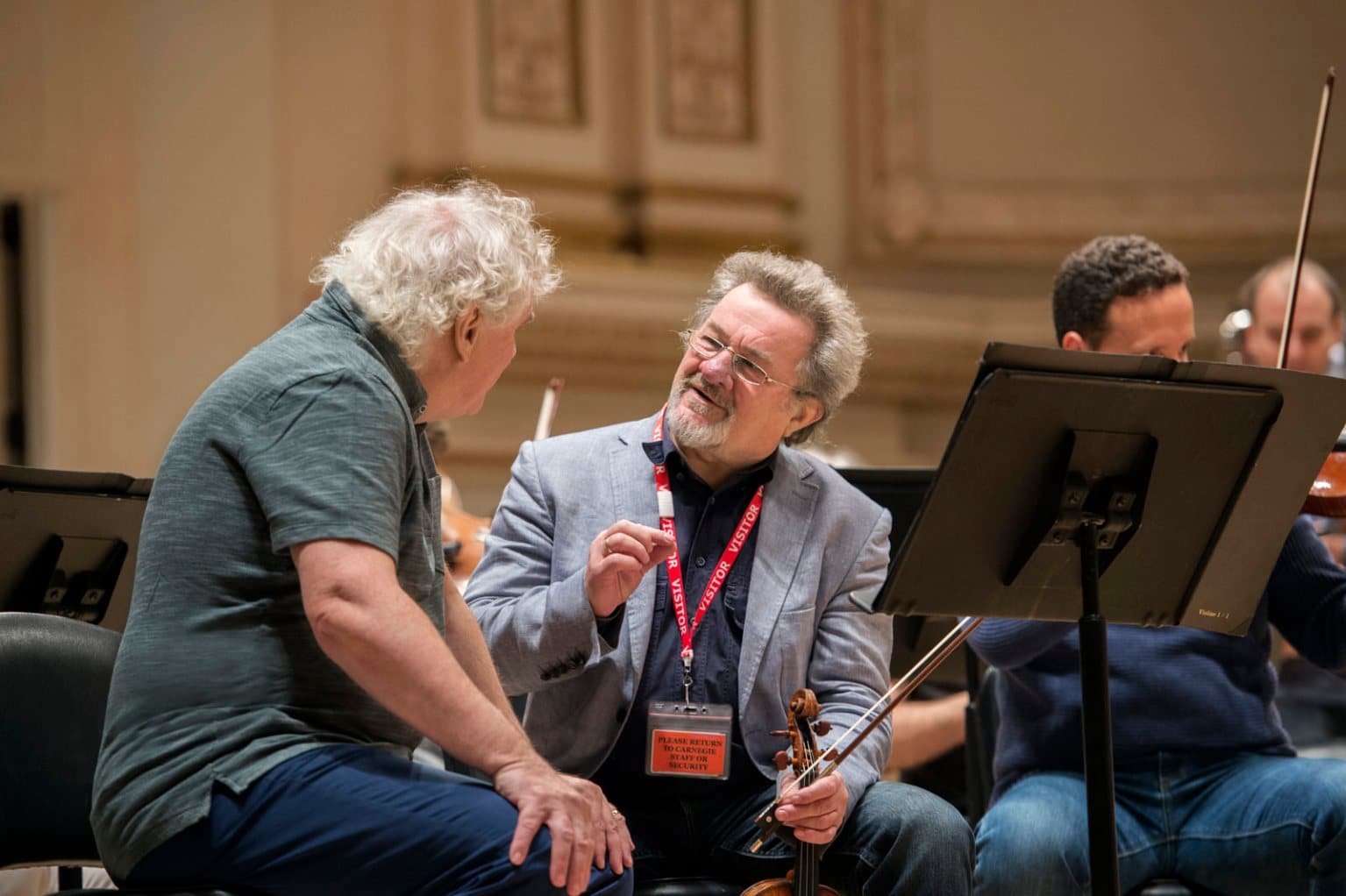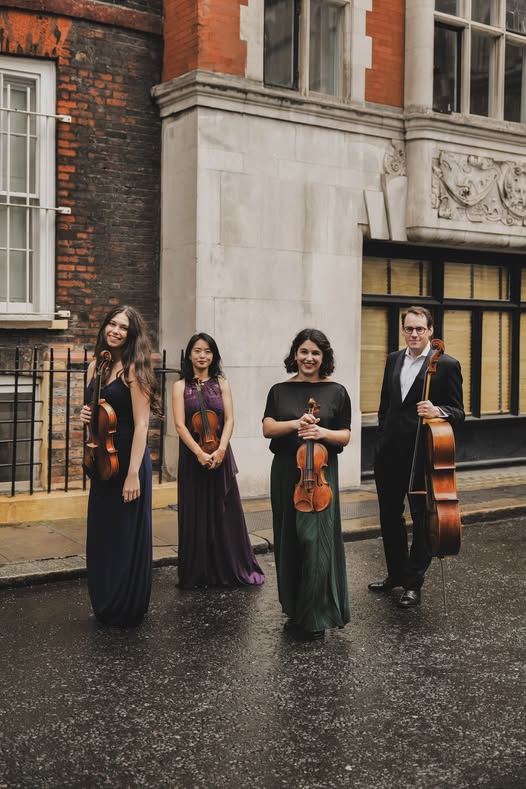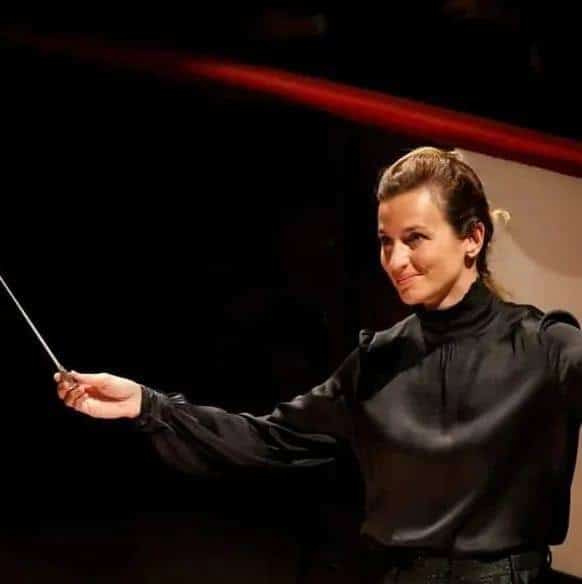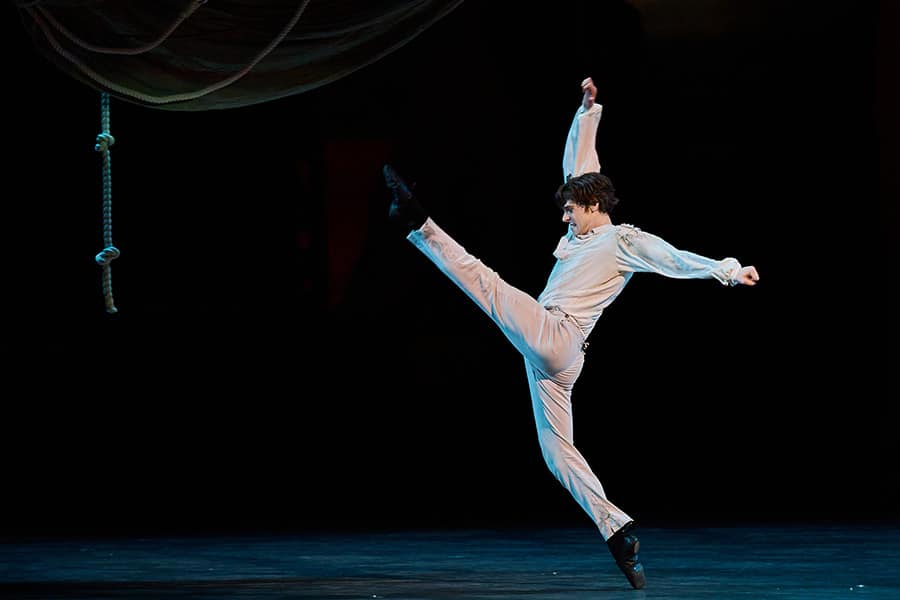Berlin Phil concertmaster: I said goodbye and I don’t want to go back any more.
mainFrom Daniel Stabrawa‘s farewell interview with VAN magazine:
VAN : On May 29th, you played your last concert as concertmaster of the Berlin Philharmonic. What did you do immediately afterwards?
Daniel Stabrawa : I organized a small drink backstage for the cast that played. It was the first time since the beginning of the pandemic that we were allowed to meet backstage, all of which were of course tested. That was a nice, optimistic sign that things are moving forward. I go, but it gets better.
I assume that you consciously chose this concert for your farewell. Why?
Yes, I did, because of Simon Rattle. He was the boss who shaped me the most and with whom I worked the longest, for 16 years. I wanted a nice, familiar and familiar face to stand in front of me at my last concert. … For me, the concert with Simon was my last. I said goodbye and don’t want to go back anymore.
What will you miss the most?
To always play at the highest level, with an orchestra that is unique. And the encounters with fantastic artists, conductors and soloists, people in general who have a lot to say.
And what is the least?
Well, there is a certain amount of stress associated with this job. Not in the sense of fear, otherwise you wouldn’t be able to pursue the job. But you always have to be on your guard. You sit in front to organize, to determine. At the same time, you are constantly aware that you can be criticized or attacked by colleagues. The best is always expected from me, and it was my aim to always work on myself to live up to that expectation. I don’t have to anymore. I am freed from this burden.
Read on here.

photo (c): Monika Rittershaus/Berlin Philharmonic Orchestra






What he said generally applies to a lot of jobs with responsibility.
He is a nice guy. i met him once after a concert he signed my programme.
“you always have to be on your guard … you are constantly aware that you can be criticized or attacked by colleagues.”
With colleagues like these, who needs enemies?
“Always be on guard” atmosphere not unlike David Mamet’s Glengarry Glen Ross, “always be closing”, where the bottom salesman will always get fired, replaced by someone younger, more eager to please, more gung-ho.
I recall an interview that a horn player from the orchestra said, proudly, we cover for no one, each person carries his or her weight.
Would it be so bad to cover for a colleague?
The longer I’ve been in this business and the higher up I’ve experienced the more I think it is delusional about the emotional toll it takes on its practitioners and the anti-social attitudes it engenders. It’s just not healthy. Yes we all strive for a high level and want to play with the best players we can, but it’s supposed to be culture, not the olympics. And it’s practiced by humans who have their ups and downs through life, not robots.
Those who spend a great deal of time denigrating Karajan and his influence on the orchestra need to read very carefully what Stabrawa has to say (in German) on that relationship. A great deal of the growing disenchantment with Rattle had much to do with his failure to build on the traditional sound of this orchestra established by Karajan. Incidentally, no names, no pack drill, but I would love to know which conductor Stabrawa was referring to when he described what happened when the orchestra said they couldn’t play at the desired speed and the conductor then proceeded to down tools.
And yet, this musician wanted it to be Rattle with whom he would share the final performance of his career and who he says shaped him the most.
That’s understandable in the sense that he spent his longest time as concertmaster playing under Rattle. But right at the end of the interview he’s asked about his dream moment. And he states it would have to be Bruckner 9 under Karajan. There’s the difference.
I don’t think any conductor would feel slighted by that. Even Sir Simon would probably say he’d like to play timpani in that performance.
Yeah, I think we need to remember that these kinds of relationships are complicated and anything but straightforward. I do think Stabrawa enjoyed working with Rattle while still missing elements of the Karajan sound. In a short film on DCH, he says this about Rattle:
“This doesn’t mean that his view is distorted or wrong, but only that it is different. And you simply have to accept this. Of course, this broadens your horizons. I was incredibly grateful to Simon Rattle for performing so much different music in a completely different way.”
Interestingly, he also says that Petrenko has a similar view of music to Karajan, something also hinted at by timpanist Rainer Seegers before he retired.
In general, it seems the orchestra enjoyed working with Rattle, perhaps more so for his expansion of the repertoire than anything else. As always, he can be behind Karajan in traditional rep without being an unmusical hack or charlatan, as some critics foolishly suggest. Rattle is a good conductor. I do think the orchestra is happier under Petrenko–that’s the vibe I get from interviews and just the orchestra’s demeanor on stage. I liked Rattle quite a lot myself, but think Petrenko is the next level. He might not show the same flexibility with rep, though. The orchestra seems to find new intensity with Petrenko, perhaps in a level not heard since Karajan.
petrenko gives a friendly
interview. not conceited
like some conductors.
Reading the article in English, maybe I didn’t get the true flavor of the comments: it seemed to me that Abbado abandoned the Karajan sound and Rattle did not try to restore it.
Regardless, an interesting, insightful interview with a fascinating performer. Looking forward to his tell-all autobiography
You may care to look at what happened over the last of the extensions to Rattle’s contract and, in particular, the fact that the orchestra deliberately kept him waiting for months before terms were finally agreed. Not an indication of the deepest and most cordial artistic partnership. Stabrawa has to be diplomatic; that is what concertmasters are trained to do. He’s hardly going to disavow his own work during the 16 years Rattle was in charge, is he? Berlin-based journalists were writing about the disenchantment with Rattle long before he decided he’d run his course there.
One can’t find, not even between the lines, in the interview Stabrawa gave that he was disenchanted by Rattle’s tenure.
Yes, conductors can, and do, change the type of sound that , my area of expertise/strings.. they wish. Case in point: probably the greatest, rich sound of all string sections was the Philadelphia, under Ormandy. Alas, a downward spiral in the years to follow.
The longer article, in German, is very much worth reading. I hope he has a long and enjoyable retirement, and can especially relish the reduced stress.
From the comments it seems obvious that there’s a tone of regret about the loss of the “Karajan sound”. How can this be? I’ll bet most readers here would put hand on heart and call themselves “progressives”!!!
How sad it must be to live a life where everything is viewed through the prism of your intolerant, mean spirited far-right politics.
It’s a very good point about “don’t go back.” Sure, go back if they have an event to honor retirees, or if they invite him to return as a soloist. But otherwise, move on. I assume he’s well-connected enough in the music world that he’ll not lack for opportunities to keep busy.
This is beautiful. ❤️